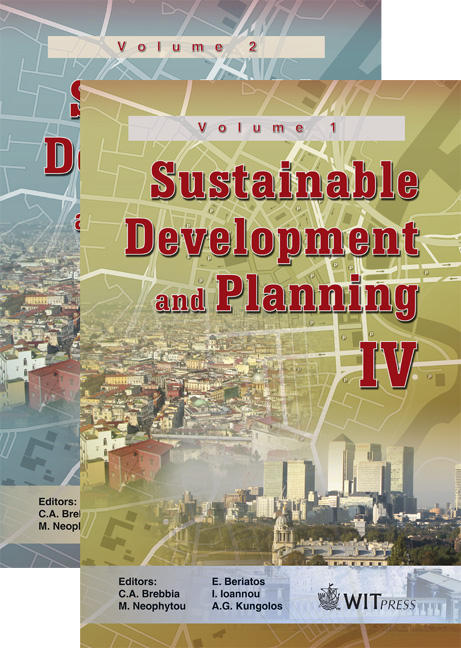Key Factors Influencing Local Agenda 21 Planning Approaches
Price
Free (open access)
Transaction
Volume
120
Pages
10
Page Range
527 - 536
Published
2009
Size
242 kb
Paper DOI
10.2495/SDP090492
Copyright
WIT Press
Author(s)
C. Calabuig, J. Peris & G. Ferrero
Abstract
Local Agenda 21 as an instrument for sustainable human development at local level is more than fifteen years old. Its original environmental bias has transformed into a multidimensional conception including social and economic change with strong influences on the political realm. Experience shows that many Local Agenda 21 processes do not obtain the expected outcomes due to many external and internal factors that make human sustainable development difficult to materialise at the local level. This paper deals with the issue of identifying the endogenous and exogenous variables that determine the development of Local Agenda 21 processes and set the differences among contexts. The emphasis is placed on methodological approaches to Local Agenda 21 planning and management of the process from a governance perspective. These factors can be appropriated for describing the different elements of Local Agenda 21 activities and their relation to long-term development in a city. Planning and management approaches underpinning Local Agenda 21 can thus be assessed in relation to their contribution to human sustainable development. Keywords: Local Agenda 21, strategic planning, sustainable human development, democratic governance, environmental management. 1 Local Agenda 21 and sustainable human development Local Agenda 21 (LA21) is the practical application of the contents of Chapter 28 of Agenda 21, one of the main outcomes of the 1992 Conference on
Keywords
Local Agenda 21, strategic planning, sustainable human development, democratic governance, environmental management.





